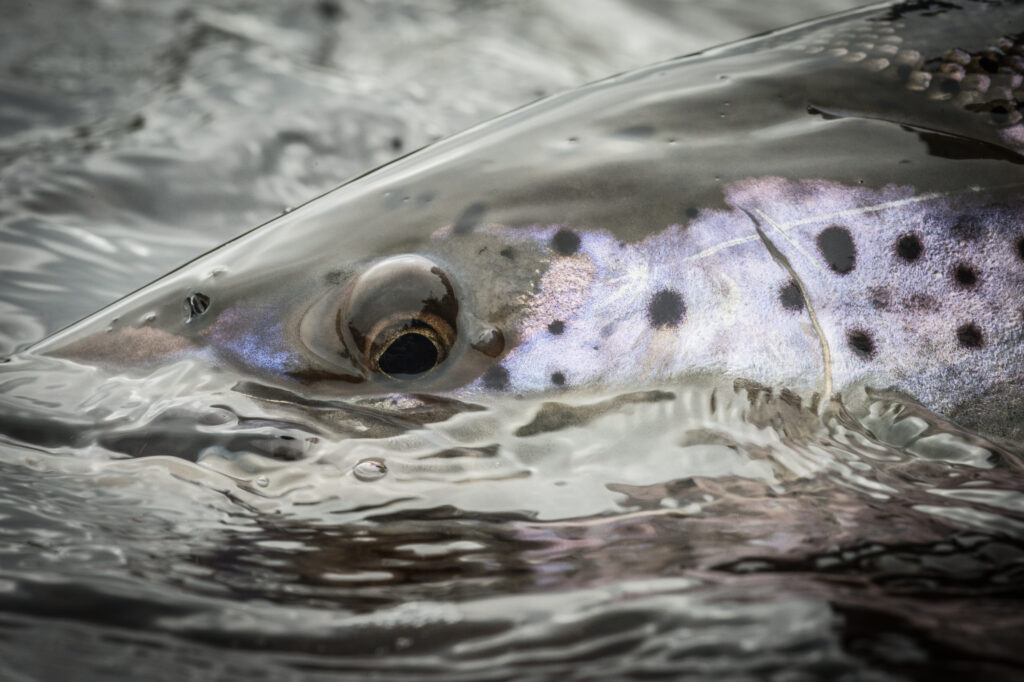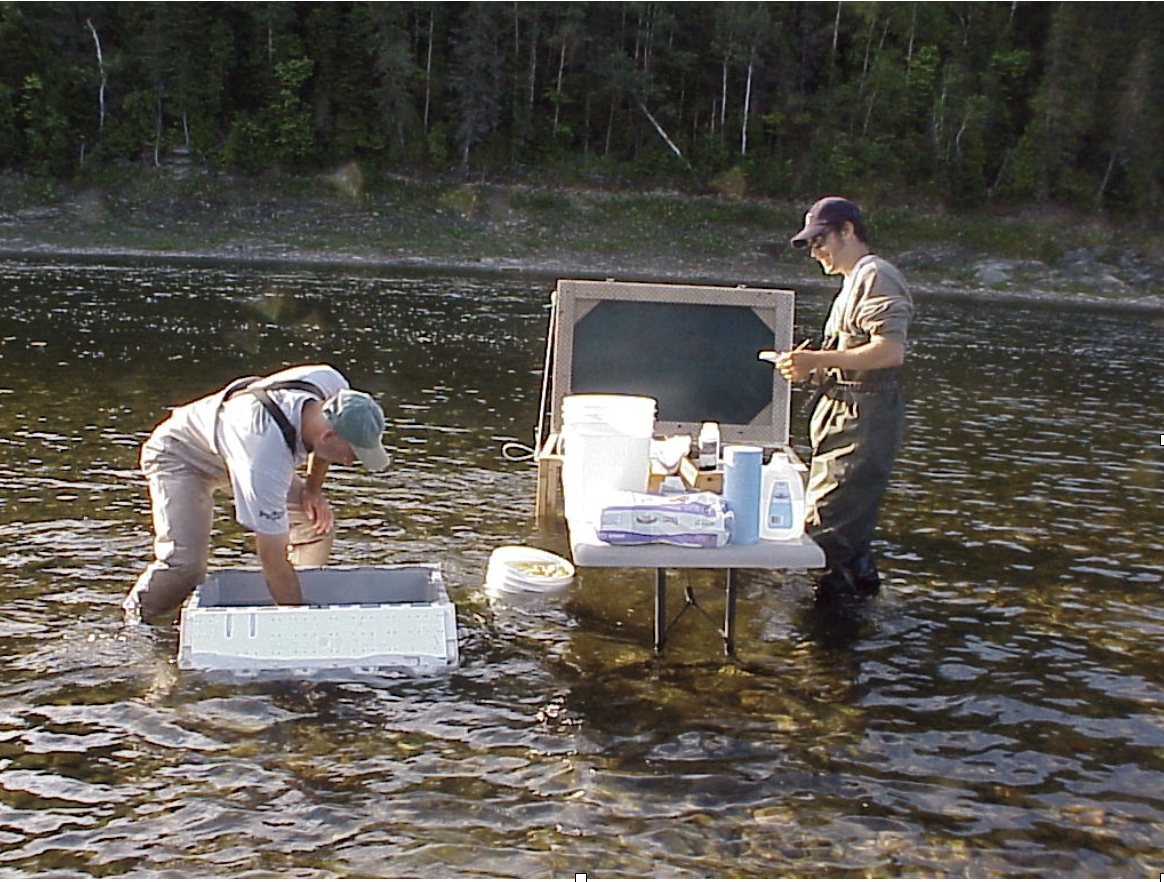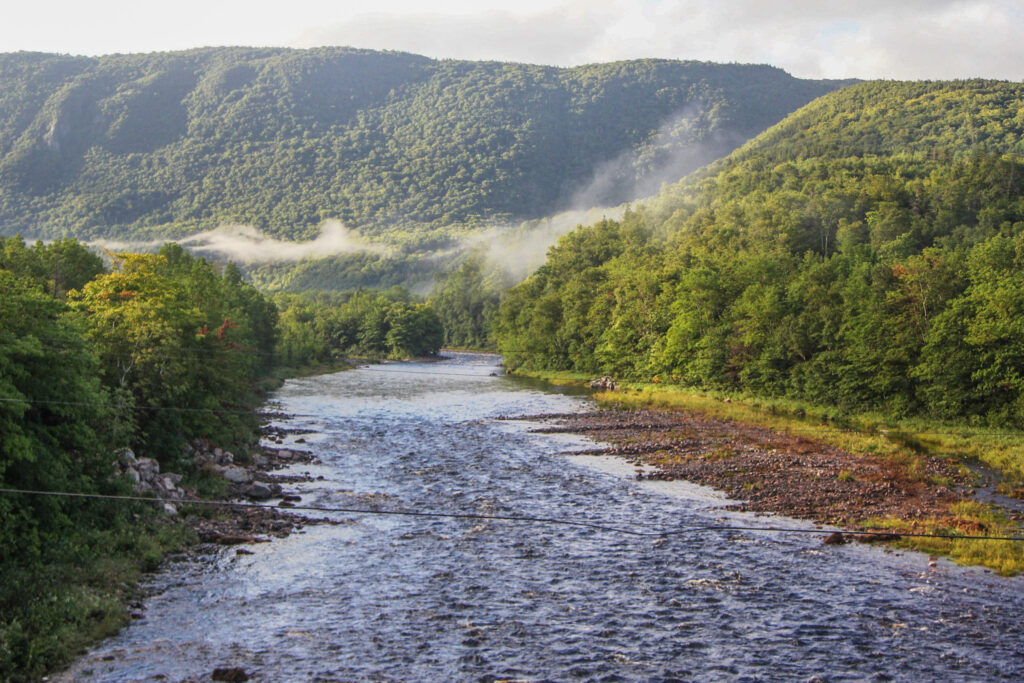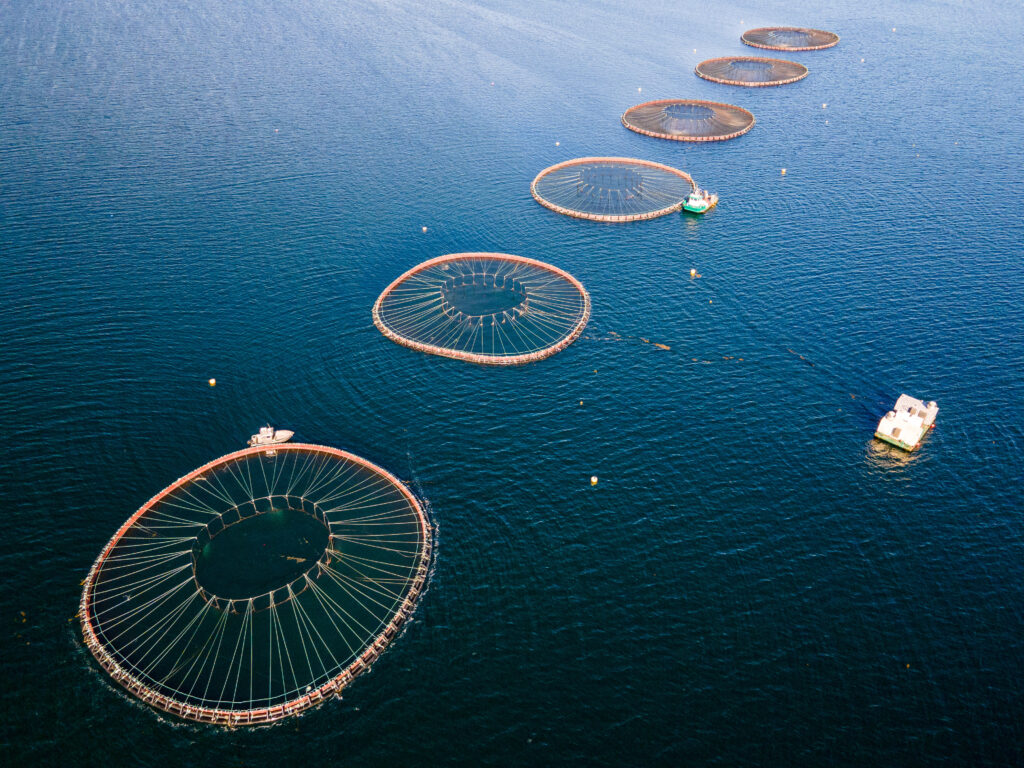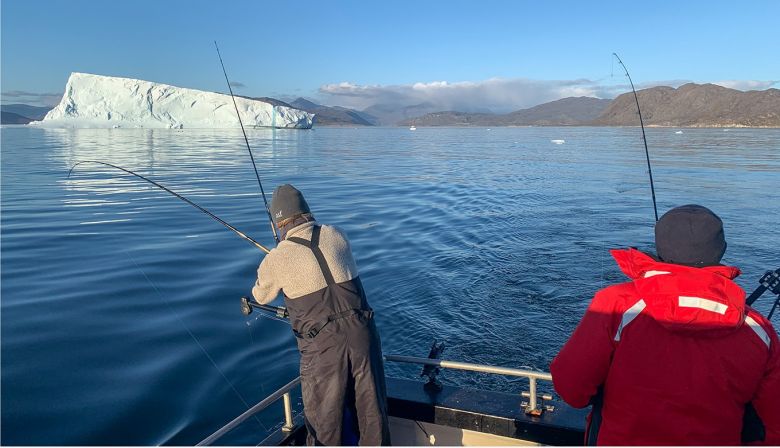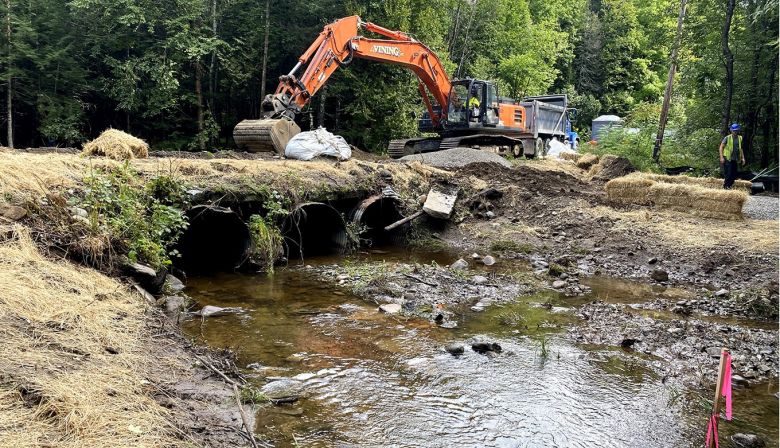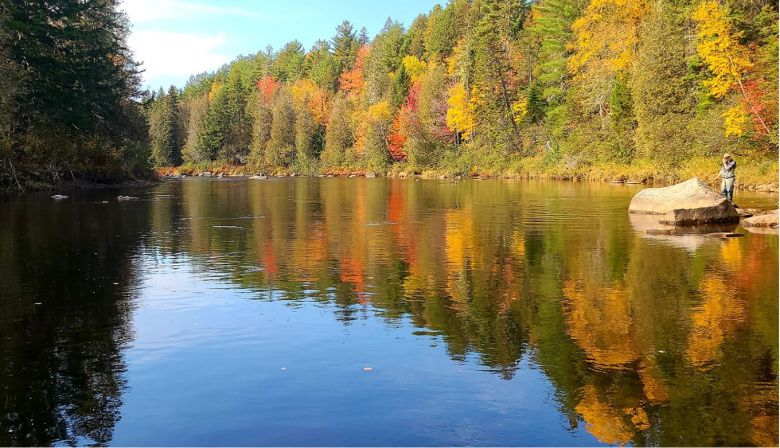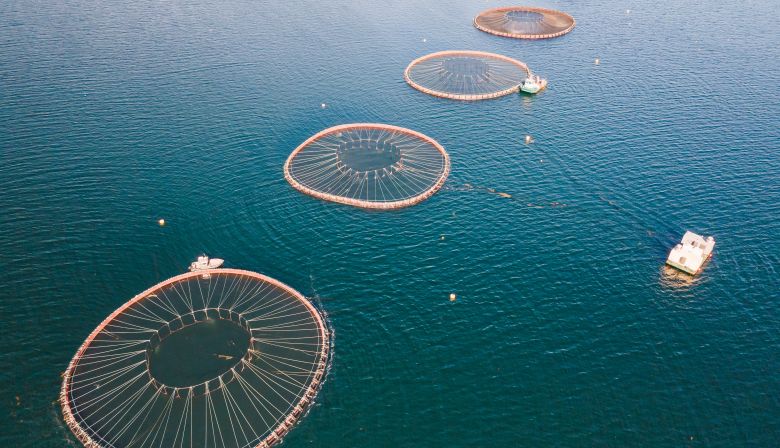Daniels, J., Chaput, G., Carr, J. Can J. 2018. Estimating consumption rate of Atlantic salmon smolts (Salmo salar) by striped bass (Morone saxatilis) in the Miramichi River estuary using acoustic telemetry. Fish.Aquat.Sci 75:1811-1822.
Chaput, G., Carr, J., Daniels, J., Tinker, S., Jonsen, I., Whoriskey, F. 2018. Atlantic Salmon (Salmo salar) smolt and early post-smolt migration and survival inferred from multi-year and multi-stock acoustic telemetry studies in the Gulf of St. Lawrence northwest Atlantic. ICES Journal of Marine Science, doi:10.193/icesjms/fsy156.
Brunsdon, E., Daniels, J., Hanke, A., and Carr, J. 2019. Tag retention and survival of Atlantic salmon (Salmo salar) smolts surgically implanted with dummy acoustic transmitters during the transition from fresh to salt water. – ICES Journal of Marine Science, doi:10.193/icesjms/fsz139, 10 pp.
Daniels, J., Sutton, S., Webber, D., and Carr, J. 2019. Extent of predation bias present in migration survival and timing of Atlantic salmon smolt (Salmo salar) as suggested by a novel acoustic tag. Anim Biotelemetry 7/16 (2019) doi:10.1186/s40317-019-0178-2, 11 pp.
Strom, J., Campana, S., Righton, D., Carr, J., Aarestrup, K., Stokesbury, M., Gargan, P., Javierr and Thorstad, E. 2019. Ocean Predation and Mortality of Adult Atlantic Salmon. Scientific Reports 9. No.1 (December 2019): 7890. https://doi.org/10.1038/s41598-019-44041-5.
Roloson, S.D., Landsman, S., Tana, R., Hicks., Carr, J, Whoriskey, F., and VanDen Heuvel, M.R. 2020 “Otolith Microchemistry and Acoustic Telemetry Revel Anadromy in Non-Native Rainbow Trout (Oncorhynchus Mykiss) in Prince Edward Island, Canada. Canadian Journal of Fisheries and aquatic Sciences 77, no.7 (July 2020): 1117-30. https://doi.org/10.1139/cjfas-20190229.
Teffer, Amy K., Carr, J., Tabata, A., Schulze, A., Bradbury, I., Deschamps, D., Gillis, C.A., Brunsdon, E.B., Mordecai, G., and Miller, K.M. 2020. A Molecular Assessment of Infectious Agents Carried by Atlantic Salmon at Sea and in Three Eastern Canadian Rivers, Including Aquaculture Escapees and North American and European Origin Wild Stocks. FACETS 5, no. 1 (January 1, 2020): 234-63. https://doi.org/10.1139/facets-2019-0048.
Quinn B., Trudel M., Wilson B., Carr J., Daniels J., Haigh S., Hardie D., Hawkes J., McKindsey C., O’Flaherty-Sproul M., Simard É., and Page F. 2021.Modelling the effects of currents and migratory behaviours on the dispersal of Atlantic salmon (Salmo salar) post-smolts in a coastal embayment. Canadian Journal of Fisheries and Aquatic Sciences. 79(12): 2087-2111. https://doi.org/10.1139/cjfas-2021-0316
Daniels, J., Brunsdon, E.B., Chaput, G., Dixon H. J., Labadie H., Carr J. 2021.Quantifying the effects of post-surgery recovery time on the migration dynamics and survival rates in the wild of acoustically tagged Atlantic Salmon Salmo salar smolts. 2021. Animal Biotelemetry 9, 6 https://doi.org/10.1186/s40317-020-00228-6.
For a complete list of our published research and technical reports, click here.
